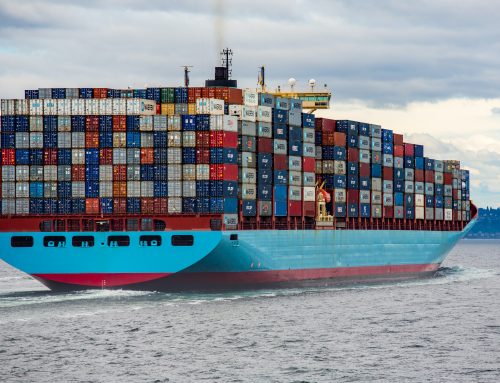Taking no chances with what appears to be increasingly likely a federal government shutdown starting Oct. 1, the National Customs Brokers & Forwarders Association of America (NCBFAA) is leading an effort among 40 other trade associations to develop a comprehensive strategy with Customs and Border Protection (CBP) and other Partner Government Agencies (PGAs) to ensure that legitimate trade is permitted to efficiently enter and exit US ports during a shutdown.
Specifically, the trade community requests:
- Private Sector Communication with the CBP “War Room” — The establishment and staffing of a CBP War Room that will work with the private-sector trade community to establish a direct line of communication for the private sector to inform the War Room in real-time on issues that must be resolved in a timely fashion to keep trade moving throughout any shutdown.
- PGA presence in the CBP War Room — PGA staff should be fully integrated into the CBP War Room, especially those agencies with hold authority, including FDA, USDA, FWS, EPA, and CPSC, that must clear goods before they can enter the stream of commerce, along with the TSA due to its important border security responsibilities. As well, continuing to provide technical support to ensure ACE is operating normally during any potential shutdown.
- CBP HQ, ports, and Centers must coordinate — During prior shutdowns, the private-sector trade community experienced breakdowns in communication between CBP HQ, the local ports, and the Centers (formerly CEEs), which caused needless inefficiencies in moving trade. To prevent this from happening again, CBP should pre-plan coordination with the Centers and the local ports.
- CBP daily briefings with the private sector — In past lapses of government funding, CBP did an incredible service to the trade by holding daily briefings. CBP should restart this best practice, so that any issues can be swiftly identified and resolved. PGAs with hold authority should attend these daily briefings in order to ensure that all parties are working together in a coordinated manner to keep trade moving.
- Trade must flow both ways — The trade community emphasizes that trade must continue moving in both directions for the duration of any lapse in government funding. Export operations and related processes, including licenses, inspections, impractical to screen cargo, and the like, must be able to flow inbound as well as outbound across the borders during a shutdown.
- All tangential trade functions must be considered essential — All Tangential Trade Functions Must be Considered Essential — The government is urged to consider tangential trade functions when deciding which employees are exempt. Examples include the issuance of steel and aluminum licenses via the Department of Commerce, EPA inspection sites, all PGA staff who conduct document reviews or technical staff to resolve automation issues, UFLPA focused-employees who review and release detained shipments, personnel who process paper checks at the ports, personnel who conduct inspections for self-propelled used vehicle exports, and USDA certificate personnel for U.S. exports. These should be deemed essential so that trade can continue to move.
“While we remain hopeful that a government shutdown can still be avoided, the current political environment in Washington is making us take a cautious approach,” said NCBFAA President Jose D. “JD” Gonzalez. “That is why it’s imperative for us to take action with CBP and the PGAs now in order that we can work with these agencies to keep our nation’s trade moving efficiently and securely.”
NCBFAA has already developed a special Government Shutdown webpage on its NCBFAA.org website in which timely informational updates related to trade from CBP and the PGAs for customs broker, freight forwarder and NVOCC members and their customers will be available.
“NCBFAA will keep its members informed with real-time information about what they need to know in order to perform their day-to-day business activities during the shutdown,” said NCBFAA Executive Vice President Megan Montgomery. “It’s all-hands-on-deck in our association.”
Who is the NCBFAA?
Established in 1897, the NCBFAA represents more than 1,200-member companies in international trade -the nation’s leading freight forwarders, customs brokers, ocean transportation intermediaries (OTIs), NVOCCs and air cargo agents, serving more than 250,000 importers and exporters. Through its various committees, counsel and representatives, the Association maintains a close watch over legislative and regulatory issues that affect its members.
To stay informed on trade news and other important updates, stay connected with a customs broker.



